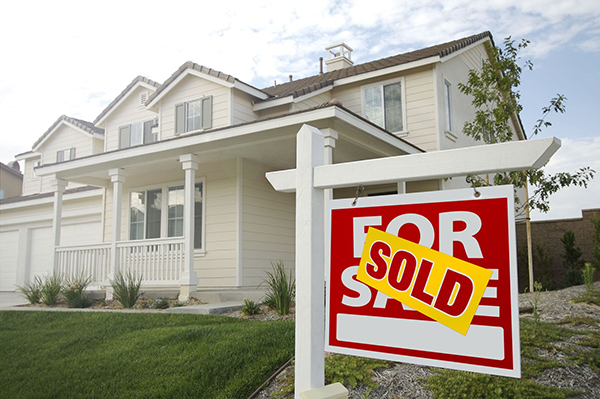5 Things Nobody Tells You About Selling Your First Home
 It’s often so exciting to think of buying a new home that homeowners forget about the sale, but there are a lot of details involved in putting a home on the market. Whether you’re just considering selling or are readying to put your home up, here are some things you might not know about the process.
It’s often so exciting to think of buying a new home that homeowners forget about the sale, but there are a lot of details involved in putting a home on the market. Whether you’re just considering selling or are readying to put your home up, here are some things you might not know about the process.
Marketing Strategy Is Important
The days of putting a sign on the front yard and waiting for buyers are gone, so it’s important to have a strategy that will successfully highlight your house. Whether you decide to make a website, use social media or invest in a professional photographer, ensure you’re prepared to put your home out there.
The Right Price Is Everything
You have the ability to change your asking price at any time, but it’s best to hit the market with a price that is both reasonable and competitive. This will not only prevent your home from lingering on the market, it will make it more likely you’ll get the offer you’re looking for.
Fixing It Up Is Important
You might want to avoid minor fix-ups before selling your home, but maintenance issues can impact the offers you’ll receive. Instead of leaving these for the next homeowner, put time aside to do paint touch-ups, repair doors or insulate the windows so the small things don’t affect your offer.
Prepare To Pack
It’s great to receive an offer on your home, but packing up can be one of the most stressful aspects of moving. Instead of leaving this to the last minute, do some preliminary ‘spring cleaning’ to discard the stuff you won’t use and pack up the stuff you won’t soon need. This will make moving out a little smoother.
Be Ready For An Open House
It can be a pain to stage your home and leave on short notice to accommodate an interested homebuyer, but a good open house is one of your best bets for selling your home. This means your house should be clean and clutter free all the time so only a few last-minute fix-ups will be required.
There are a lot of things involved in selling your first home, but by completing the little fix ups and choosing the right price, you’ll be well on your way to an interested buyer.

 Once you’re done with debt and you’ve started to save, it’s commonly the case that you’ll start hearing about the risks and rewards of investing in stocks or real estate. Unfortunately, it can be difficult for many people to know what type of investment is going to work better for them down the road. If you’re currently considering what you should put your money into, here are some reasons you may want to turn to real estate.
Once you’re done with debt and you’ve started to save, it’s commonly the case that you’ll start hearing about the risks and rewards of investing in stocks or real estate. Unfortunately, it can be difficult for many people to know what type of investment is going to work better for them down the road. If you’re currently considering what you should put your money into, here are some reasons you may want to turn to real estate. Selling a home, especially one with sentimental value, is never an easy decision to make. There are many factors that go into determining if the home is ready to be listed and if the seller is actually ready to part with it.
Selling a home, especially one with sentimental value, is never an easy decision to make. There are many factors that go into determining if the home is ready to be listed and if the seller is actually ready to part with it.